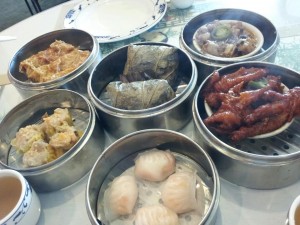While traveling in a foreign country, eating the local food is one of the best ways to experience the culture. Whether you are studying abroad or on vacation, I recommend sampling as much food as you can try from street venders to 5 starts restaurants – and don’t forget about the local grocery store!
Be careful, however, since getting sick from eating contaminated food is no fun! In some cases, contaminated food can lead to vomiting, diarrhea, and fevers – all clear signs of food poisoning. This problem can range from mild irritation to severe diarrhea which could result in serious a medical condition.
Food poisoning can happen anywhere – even at home – but the risk increases overseas, especially if you are traveling to a developed country where food hygiene standards are different. Do research before you leave so that you can prepare and take measures to stay healthy while abroad.
To safeguard against this problem here are some food safety while traveling:
Personal hygiene – Just like what your parents always told you, wash your hands with soap and water before eating. If soap is hard to come by, you may find that carrying hand sanitizer is an easy way to clean up on the move! Personally, I prefer a sanitizer wipe over just the liquid solution.
Food – Avoid raw or under-cooked food especially when it comes to meat and seafood. If you are eating fruits, look for one that have skin that you can peel off such as bananas or oranges. Avoid fruit that has already been peeled or that has damage to the skin. When eating at a restaurant, look for a place that is busy with fresh food served up from the kitchen. Many guides warn travelers against eating food from street vendors. Personally I enjoy eating street food, but if you choose to do this, use your best judgment to determine if the food is fresh, hygiene clean, and food is thoroughly cooked.
Water – Watching out for what you drink is also important. In many countries the tap water is not suitable for drinking. Make sure you boil your water before drinking it to kill of any germs, or buy bottles of water and check to see that the seal is intact. Choose canned drinks if they are available as many bottles can easily be refilled by untrustworthy sources. Remember, avoid ice in your drinks as well.
Even if you are mindful of food safety while traveling, this may not guarantee that you will not get a food-related illness. So if you do get sick, make sure you stay hydrated by drinking fluids. Take over the counter medication with you (see tips for traveling with medication) to help prepare for the unexpected. If severe, make sure you see a doctor as soon as possible, especially if the problem persists. Having a good travel medical insurance can also make medical treatment simpler and can help cover the medical expenses.
Having good food can make your travel more enjoyable, but staying healthy is fundamental to a great experience.
Category: Health & Safety Abroad, Study Abroad
